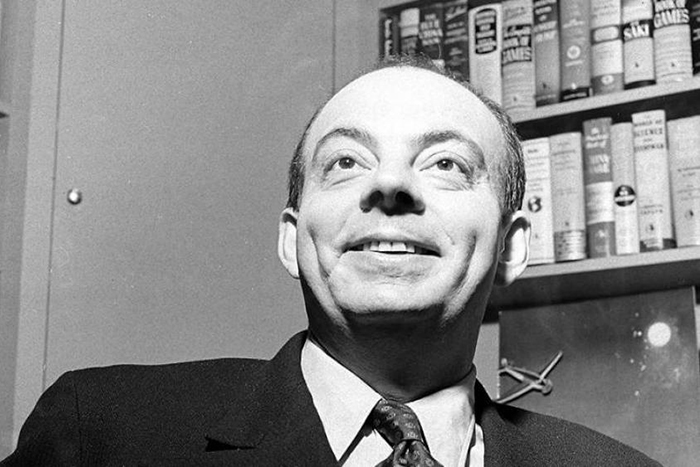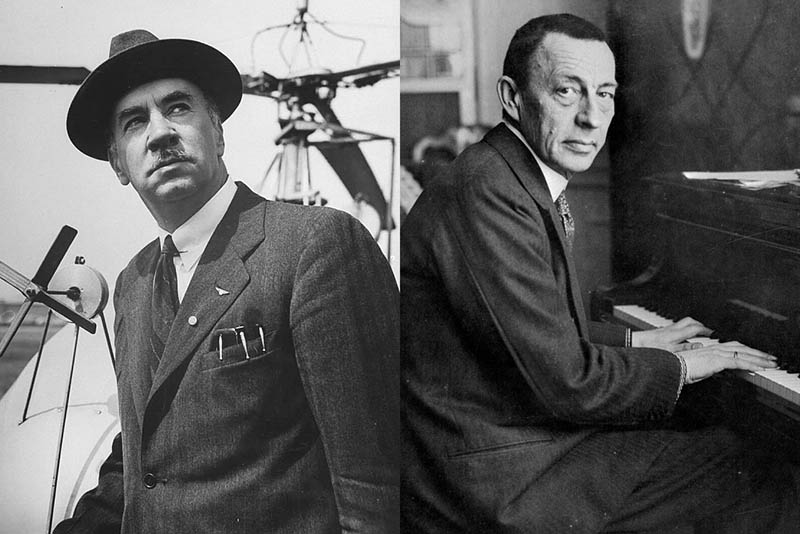
It is only with the heart that one can see rightly;
what is essential is invisible to the eye.
Antoine Saint-Exupery, The Little Prince
Christian life always presupposes our development. We should seek for something lighter and better all the time. It is essential to understand that the Gospel is addressed to our hearts. God wants our hearts to acquire the special traits that Christ possesses. For softening of one’s heart special nourishment is needed that bears the grace of God. It would probably be incorrect to call everybody to unceasing prayer, to controlling thoughts with all vigilance, to reading only the Gospel and patristic literature. Undoubtedly, all of this is important, but something else is needed as well. This is the accumulated experience, hidden in works of classical literature. If we turn to this source and ask for God’s help in prayer, we can find many useful and edifying things there. The Christian truths are woven into many literary works with invisible threads. In order to find the precious pearl of the Gospel truth in the huge field of human thoughts you need to have sharp spiritual sight, a sensitive soul and internal intuition. This path is open for all.
As an example let us look into the works of Antoine de Saint-Exupery (1900-1944)—a classic of French literature. Probably his most famous books are The Little Prince and Man and His World.
Without going into detail, I will mention only the main merit of these literary works: they teach us to be good. And it means that the author himself was a good man, a Christian. If a work is filled with light, it is capable of giving comfort to our hearts. It means that its contents are to the benefit of a human soul because the Gospel is partly hidden in it. The whole Gospel is addressed to the human soul as the supreme value of the whole created world. A. Saint-Exupery dwells on man and the purpose of his life, as well. “To be a man is, precisely, to be responsible. It is to feel shame at the sight of what seems to be unmerited misery. It is to take pride in a victory won by one’s comrades. It is to feel, when setting one’s stone, that one is contributing to the building of the world.”
Nowadays, many people’s system of values of has been shaken. Money has become the top priority. Now it substitutes for God, conscience, or patriotism. And what is in store for the people who are oriented solely on worldly goods and material welfare? “When we work with the exclusive aim to acquire material goods, we build ourselves our prison, where, solitaries, we lock ourselves up with our money of ashes with which we cannot buy anything that is worth living,” Saint-Exupery writes. “He who acquires material goods only will reap the fruit that is not worthy to live for.”
And what is perfection, which is mentioned in the Gospels so many times?
The writer says: “Perfection is achieved not when there is nothing more to add, but when there is nothing left to take away.” If there is nothing left to take away, it means that inner harmony has been achieved and a person already lives with Christ. His soul has acquired new qualities. And can kindness, honesty, or compassion be taken away from anybody? He who loves achieves salvation; he is already in the Heavenly Kingdom, which cannot be taken away from anyone.
Christ’s parables and sayings often refer to nature. As is generally known, nature is a great book that testifies to the glory of God. Sometimes life of nature justly exposes our faults. This is what Prophet Isaiah says: The ox knoweth his owner, and the ass his master’s crib: but Israel doth not know, my people doth not consider (Isa. 1:3). A. Saint-Exupery continues the theme: “In a world in which life so perfectly responds to life, where flowers mingle with flowers in the wind’s eye, where the swan is familiar with all the swans, man alone builds his isolation. This is how our inner world contributes to our alienation from each other.”
If in Christian life our highest goal is love (see also 1 Cor. 14:1), then it is important that we should know these ways. Since we try to love God in our neighbors, let us keep this valuable advice of the French thinker in mind: “Love does not consist of gazing at each other, but of looking outward together in the same direction.”
If members of all our families wouldn’t keep watch on each other or on one another’s passions (by which every human soul is infected); if they wouldn’t look out for something wrong in someone else’s behavior or note the slightest defects of their close relatives’ physical appearance and temper; if the speck in a husband’s or a wife’s eye didn’t turn into a beam; if we saw the image of Christ in our nearest and dearest and served them in the spirit of love, then our life would be transformed indeed. Looking together in the same direction, to Christ and His Gospel, eternity and the Heavenly Kingdom reign. It is extremely important to understand this and to put it into practice.
We often have to stress the need for spiritual development and self-education. For the Kingdom of Heaven is taken by force (see Mt. 11:12). This labor is necessary for everyone. Otherwise we will see the Heavenly Kingdom no more than we can see our own ears. The truth is in Christ; and in order to get to know this truth, lifelong podvig [ascetic labor] is needed, coupled with exertion of your soul’s energies to the utmost, especially of mind and heart.
According to A. Saint-Exupery: “The truth does not lie on the surface. If it is this religion, this culture, this measure of things, this form of activity rather than any other gives a person a feeling of spiritual fullness, power, which he himself did not know, then this measure of things, this culture, this form of activity is the truth of man.”
And let us add: “The truth of a man is what makes him a man.” “The truth is that which simplifies the world and not that which creates chaos.” “The truth is not something provable. The truth is simplicity.” Today, more than ever, people are suffering from loneliness. Quite often people feel lonesome even in their own families. All of us are disconnected from one another. When we begin our life in Church, we should try to find a true friend, a kindred spirit. For a faithful friend is the medicine of life. A. Saint-Exupery, who was a pilot, knew the value of genuine friendship. He said remarkable words on this subject: “Nothing, in truth, can ever replace a lost companion. Old comrades cannot be manufactured. There is nothing that can equal the treasure of so many shared memories, so many bad times endured together, so many quarrels, reconciliations, heartfelt impulses. Friendship like that cannot be reconstructed.”
A person who is able to be a faithful friend will always sacrifice himself for others’ sakes. Therefore, a fundamental Christian virtue is achieved—service to your neighbor. The core of Christianity is in serving others, with sacrifice and self-denial. When we begin to take pity on ourselves and to take care of ourselves, we become like an old bureaucrat of whom A. Saint-Exupery wrote: “O, old bureaucrat! You built your peace by blocking up every chink and cranny with cement, like a termite. You rolled yourself up into a ball in your genteel security, in the stifling conventions of provincial life. You raised this miserable rampart, hiding yourself from the winds, and the tides, and the stars. You chose not to be perturbed by great problems, having enough trouble to forget that you are a man. Now the clay of which you were shaped has dried and hardened, and nothing will ever awaken the sleeping musician, or the poet, or the astronomer that possibly inhabited you in the beginning.”
Let us conclude our meditation on the purpose of life with the words spoken by the Little Prince and his friend, the Fox: “It is only with the heart that one can see rightly; what is essential is invisible to the eye. You mustn’t forget it: you become responsible forever for what you’ve tamed…”
How important it is: to see with your heart.
To see God, your neighbors, and the world around you…
The main requirement for this is purity of heart. And we can attain to purity of heart with the help of God after many years of laborious work. Sometimes we lose heart because we seem to be making little or no progress at all. But this is not the case. God appreciates any efforts that we make. Christ is always near and is willing to give us a helping hand. We must firmly believe it. And Christ is the most important thing that is invisible to our eyes. The vision of heart is needed here. But heart should be gentle, kind and pure, for, Blessed are the pure in heart: for they shall see God (Mt. 5:8).



